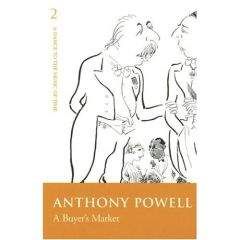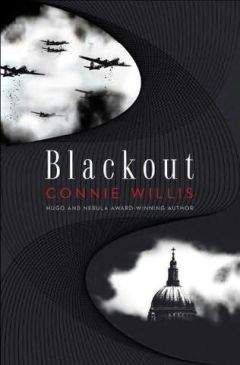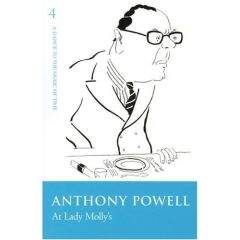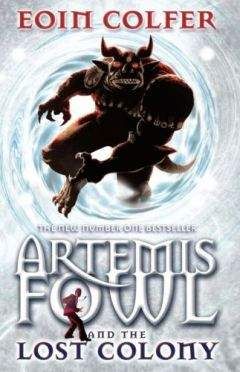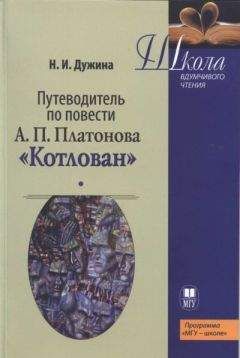W. Ainsworth - Rookwood
And my love was pure for my paramour, for alas! he was my brother!
The Red, Red Rose, on thy banner glows, on his pennon gleams the White,
And the bitter feud, that ye both have rued, forbids ye to unite.
"My bower he sought, what time he thought thy jealous vassals slept,
Of joy we dreamed, and never deemed that watch those vassals kept.
An hour flew by, too speedily!—that picture was his boon:
Ah! little thrift to me that gift: he left me all too soon!
"Wo worth the hour! dark fates did lower, when our hands were first united,
For my heart's firm truth, 'mid tears and ruth, with death hast thou requited:
In prayer sincere, full many a year of my wretched life I've spent;
But to hell's control would I give my soul, to work thy chastisement!"
These wild words said, low drooped her head, and Ranulph's life-blood froze,
For the earth did gape, as an awful shape from out its depths arose:
"Thy prayer is heard, Hell hath concurred," cried the fiend, "thy soul is mine!
Like fate may dread each dame shall wed with Ranulph or his line!"
Within the tomb to await her doom is that hapless lady sleeping,
And another bride by Ranulph's side through the livelong night is weeping.
This dame declines—a third repines, and fades, like the rest away;
Her lot she rues, whom a Rookwood woos—cursed is her Wedding Day!
"And this is the legend of my ancestress?" said Luke, as Sybil's strains were ended.
"It is," replied she.
"An idle tale," observed Luke, moodily.
"Not so," answered Sybil. "Has not the curse of blood clung to all your line? Has it not attached to your father—to Sir Reginald—Sir Ralph—Sir Ranulph—to all? Which of them has escaped it? And when I tell you this, dear Luke; when I find you bear the name of this accursed race, can you wonder if I shudder at adding to the list of the victims of that ruthless spirit, and that I tremble for you? I would die for you willingly—but not by your hand. I would not that my blood, which I would now pour out for you as freely as water, should rise up in judgment against you. For myself I have no fears—for you, a thousand. My mother, upon her deathbed, told me I should never be yours. I believed her not, for I was happy then. She said that we never should be united; or, if united—"
"What, in Heaven's name?"
"That you would be my destroyer; that your love should turn to hatred; that you would slay me. How could I credit her words then? How can I doubt them now, when I find you are a Rookwood? And think not, dear Luke, that I am ruled by selfish fears in this resolution. To renounce you may cost me my life; but the deed will be my own. You may call me superstitious, credulous; I have been nurtured in credulity. It is the faith of my fathers. There are those, methinks, who have an insight into futurity; and such boding words have been spoken, that, be they true or false, I will not risk their fulfilment in my person. I may be credulous; I may be weak; I may be erring; but I am steadfast in this. Bid me perish at your feet, and I will do it. I will not be your Fate. I will not be the wretched instrument of your perdition. I will love, worship, watch, serve, perish for you—but I will not wed you."
Exhausted by the vehemence of her emotion, she would have sunk upon the ground, had not Luke caught her in his arms. Pressing her to his bosom, he renewed his passionate protestations. Every argument was unavailing. Sybil appeared inflexible.
"You love me as you have ever loved me?" said she, at length.
"A thousand-fold more fervently," replied Luke; "put it to the test."
"How if I dared to do so? Consider well: I may ask too much."
"Name it. If it be not to surrender you, by my mother's body I will obey you."
"I would propose an oath."
"Ha!"
"A solemn, binding oath, that, if you wed me not, you will not wed another. Ha! do you start? Have I appalled you?"
"I start? I will take it. Hear me—by—"
"Hold!" exclaimed a voice behind them. "Do not forswear yourself." And immediately afterwards the sexton made his appearance. There was a malignant smile upon his countenance. The lovers started at the ominous interruption.
"Begone!" cried Luke.
"Take not that oath," said Peter, "and I leave you. Remember the counsel I gave you on our way hither."
"What counsel did he give you, Luke?" enquired Sybil, eagerly, of her lover.
"We spoke of you, fond girl," replied Peter. "I cautioned him against the match. I knew not your sentiments, or I had spared myself the trouble. You have judged wisely. Were he to wed you, ill would come of it. But he must wed another."
"MUST!" cried Sybil, her eyes absolutely emitting sparkles of indignation from their night-like depths; and, unsheathing as she spoke the short poniard which she wore at her girdle, she rushed towards Peter, raising her hand to strike.
"Must wed another! And dare you counsel this?"
"Put up your dagger, fair maiden," said Peter, calmly. "Had I been younger, your eyes might have had more terrors for me than your weapon; as it is, I am proof against both. You would not strike an old man like myself, and of your lover's kin?"
Sybil's uplifted hand fell to her side.
"'Tis true," continued the sexton, "I dared to give him this advice; and when you have heard me out, you will not, I am persuaded, think me so unreasonable as, at first, I may appear to be. I have been an unseen listener to your converse; not that I desire to pry into your secrets, far from it; I overheard you by accident. I applaud your resolution; but if you are inclined to sacrifice all for your lover's weal, do not let the work be incomplete. Bind him not by oaths which he will regard as spiders' webs, to be burst through at pleasure. You see, as well as I do, that he is bent on being lord of Rookwood; and, in truth, to an aspiring mind, such a desire is natural, is praiseworthy. It will be pleasant, as well as honourable, to efface the stain cast upon his birth. It will be an act of filial duty in him to restore his mother's good name; and I, her father, laud his anxiety on that score; though, to speak truth, fair maid, I am not so rigid as your nice moralists in my view of human nature, and can allow a latitude to love, which their nicer scruples will not admit. It will be a proud thing to triumph over his implacable foe; and this he may accomplish—"
"Without marriage," interrupted Sybil, angrily.
"True," returned Peter; "yet not maintain it. May win it, but not wear it. You have said truly, the house of Rookwood is a fated house; and it hath been said likewise, that if he wed not one of his own kindred—that if Rook mate not with Rook, his possessions shall pass away from his hands. Listen to this prophetic quatrain:
"When the stray Rook shall perch on the topmost bough,
There shall be clamour and screeching, I trow,
But of right to, and rule of the ancient nest,
The Rook that with Rook mates shall hold him possest.
You hear what these quaint rhymes say. Luke is doubtless the stray Rook, and a fledgling hath flown hither from a distant country. He must take her to his mate, or relinquish her and 'the ancient nest' to his brother. For my own part, I disregard such sayings. I have little faith in prophecy and divination. I know not what Eleanor Mowbray, for so she is called, can have to do with the tenure of the estates of Rookwood. But if Luke Rookwood, after he has lorded it for a while in splendour, be cast forth again in rags and wretchedness, let him not blame his grandsire for his own want of caution."
"Luke, I implore you, tell me," said Sybil, who had listened, horror-stricken, to the sexton, shuddering, as it were, beneath the chilly influence of his malevolent glance, "is this true? Does fate depend upon Eleanor Mowbray? Who is she? What has she to do with Rookwood? Have you seen her? Do you love her?"
"I have never seen her," replied Luke.
"Thank Heaven for that!" cried Sybil. "Then you love her not?"
"How were that possible?" returned Luke. "Do I not say I have not seen her?"
"Who is she, then?"
"This old man tells me she is my cousin. She is betrothed to my brother, Ranulph."
"How?" ejaculated Sybil. "And would you snatch his betrothed from your brother's arms? Would you do him this grievous wrong? Is it not enough that you must wrest from him that which he hath long deemed his own? And if he has falsely deemed it so, it will not make his loss the less bitter. If you do thus wrong your brother, do not look for happiness; do not look for respect; for neither will be your portion. Even this stony-hearted old man shrinks aghast at such a deed. His snake-like eyes are buried on the ground. See, I have moved even him."
And in truth Peter did appear, for an instant, strangely moved.
"'Tis nothing," returned he, mastering his emotion by strong effort. "What is all this to me? I never had a brother. I never had aught—wife, child, or relative—that loved me. And I love not the world, nor the things of the world, nor those that inhabit the world. But I know what sways the world and its inhabitants; and that is SELF! AND SELF-INTEREST! Let Luke reflect on this. The key to Rookwood is Eleanor Mowbray. The hand that grasps hers, grasps those lands: thus saith the prophecy."
"It is a lying prophecy."
"It was uttered by one of your race."
"By whom?"
"By Barbara Lovel," said Peter, with a sneer of triumph.
"Ha!"
"Heed him not," exclaimed Luke, as Sybil recoiled at this intelligence. "I am yours."
"Not mine! not mine!" shrieked she; "but oh! not hers!"
"Whither go you?" cried Luke, as Sybil, half bewildered, tore herself from him.
"To Barbara Lovel."
"I will go with you."
"No! let me go alone. I have much to ask her; yet tarry not with this old man, dear Luke, or close your cars to his crafty talk. Avoid him. Oh, I am sick at heart. Follow me not: I implore you, follow me not."
And with distracted air she darted amongst the mouldering cloisters, leaving Luke stupefied with anguish and surprise. The sexton maintained a stern and stoical composure.
"She is a woman, after all," muttered he; "all her high-flown resolves melt like snow in the sunshine, at the thought of a rival. I congratulate you, grandson Luke; you are free from your fetters."
"Free!" echoed Luke. "Quit my sight; I loathe to look upon you. You have broken the truest heart that ever beat in woman's bosom."
"Tut, tut," returned Peter; "it is not broken yet. Wait till we hear what old Barbara has got to say; and, meanwhile, we must arrange with Dick Turpin the price of that certificate. The knave knows its value well. Come, be a man. This is worse than womanish."
And at length he succeeded, half by force and half by persuasion, in dragging Luke away with him.
| Contents |
CHAPTER IV
BARBARA LOVEL
LIKE a dove escaped from the talons of the falcon, Sybil fled from the clutches of the sexton. Her brain was in a whirl, her blood on fire. She had no distinct perception of external objects; no definite notion of what she herself was about to do, and glided more like a flitting spirit than a living woman along the ruined ambulatory. Her hair had fallen in disorder over her face. She stayed not to adjust it, but tossed aside the blinding locks with frantic impatience. She felt as one may feel who tries to strain his nerves, shattered by illness, to the endurance of some dreadful, yet necessary pain.
Sybil loved her granddame, old Barbara; but it was with a love tempered by fear. Barbara was not a person to inspire esteem or to claim affection. She was regarded by the wild tribe which she ruled as their queen-elect, with some such feeling of inexplicable awe as is entertained by the African slave for the Obeah woman. They acknowledged her power, unhesitatingly obeyed her commands, and shrank with terror from her anathema, which was indeed seldom pronounced; but when uttered, was considered as doom. Her tribe she looked upon as her flock, and stretched her maternal hand over all, ready alike to cherish or chastise; and having already survived a generation, that which succeeded, having from infancy imbibed a superstitious veneration for the "cunning woman," as she was called, the sentiment could never be wholly effaced.
Winding her way, she knew not how, through roofless halls, over disjointed fragments of fallen pillars, Sybil reached a flight of steps. A door, studded with iron nails, stayed her progress; it was an old strong oaken frame, surmounted by a Gothic arch, in the keystone of which leered one of those grotesque demoniacal faces with which the fathers of the Church delighted to adorn their shrines. Sybil looked up—her glance encountered the fantastical visage. It recalled the features of the sexton, and seemed to mock her—to revile her. Her fortitude at once deserted her. Her fingers were upon the handle of the door. She hesitated; she even drew back, with the intention of departing, for she felt then that she dared not face Barbara. It was too late—she had moved the handle. A deep voice from within called to her by name. She dared not disobey that call—she entered.
The room in which Sybil found herself was the only entire apartment now existing in the priory. It had survived the ravages of time; it had escaped the devastation of man, whose ravages outstrip those of time. Octagonal, lofty, yet narrow, you saw at once that it formed the interior of a turret. It was lighted by a small oriel window commanding a lovely view of the scenery around, and panelled with oak, richly wrought in ribs and groins; and from overhead depended a moulded ceiling of honeycomb plaster-work. This room had something, even now, in the days of its desecration, of monastic beauty about it. Where the odour of sanctity had breathed forth, the fumes of idolatry prevailed; but imagination, ever on the wing, flew back to that period (and a tradition to that effect warranted the supposition) when, perchance, it had been the sanctuary and the privacy of the prior's self.
Wrapped in a cloak composed of the skins of various animals, upon a low pallet, covered with stained scarlet cloth, sat Barbara. Around her head was coiffed, in folds like those of an Asiatic turban, a rich, though faded shawl, and her waist was encircled with the magic zodiacal zone—proper to the sorceress—the Mago Cineo of the Cingara (whence the name of Zingaro, according to Monçada), which Barbara had brought from Spain. From her ears depended long golden drops, of curious antique fashioning; and upon her withered fingers, which looked like a coil of lizards, were hooped a multitude of silver rings, of the purest and simplest manufacture. They seemed almost of massive unwrought metal. Her skin was yellow as the body of a toad; corrugated as its back. She might have been steeped in saffron from her finger-tips, the nails of which were of the same hue, to such portions of her neck as were visible, and which was puckered up like the throat of a turtle. To look at her, one might have thought the embalmer had experimented her art upon herself. So dead, so bloodless, so blackened seemed the flesh, where flesh remained, leather could scarce be tougher than her skin. She seemed like an animated mummy. A frame, so tanned, appeared calculated to endure for ages; and, perhaps, might have done so. But alas! the soul cannot be embalmed. No oil can re-illumine that precious lamp! And that Barbara's vital spark was fast waning, was evident, from her heavy, bloodshot eyes, once of a swimming black, and lengthy as a witch's, which were now sinister and sunken.
